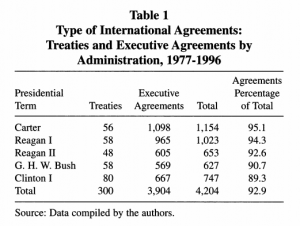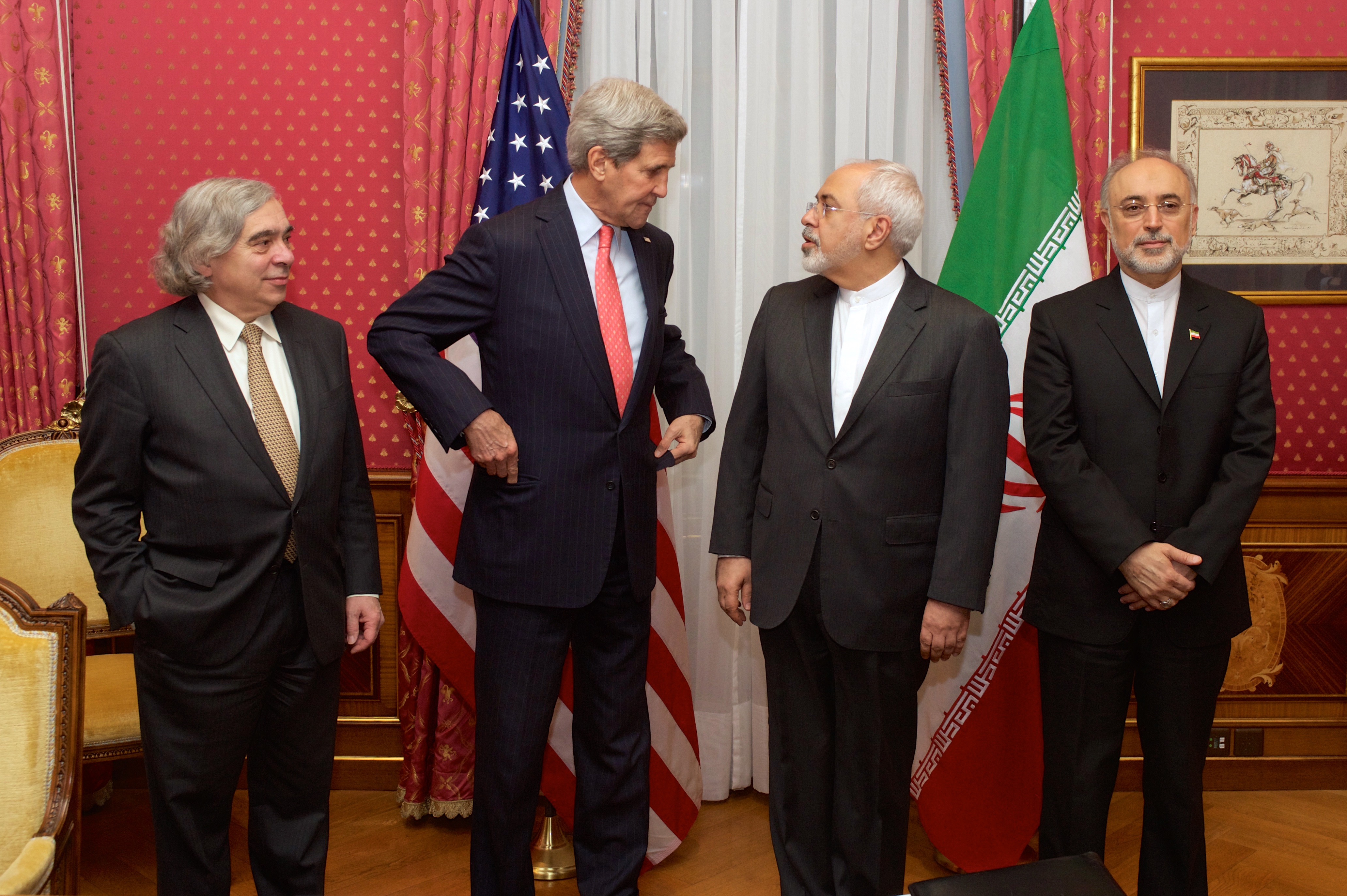On March 3, Israeli Prime Minister Benjamin Netanyahu delivered a speech to the U.S. Congress. Netanyahu accepted an invitation from Speaker of the House John Boehner, an unconventional request done without consultation of President Obama. The two heads of state did not meet while Netanyahu was visiting Washington D.C. Despite the White House’s disapproval, Netanyahu delivered a passionate 40-minute address decrying Obama’s potential nuclear deal with Iran. While a cross section of Democrats announced they would not attend the speech, most of Congress happily welcomed Netanyahu.
.
Netanyahu criticized the United States’ cooperation with Iran, specifically the recent multilateral efforts involving China, Russia, Germany, the United Kingdom, and France working with Iran through the European Union in a group known as the P5+1. He stated “Iran and ISIS are competing for the crown of militant Islam,” and any U.S. efforts to defeat just ISIS would be “win[ning] the battle, but los[ing] the war.” While recognizing Elie Wiesel, a Holocaust survivor and Nobel Prize winner, Netanyahu said “standing up to Iran is not easy. Standing up to dark and murderous regimes never is.” He promised “the days when the Jewish people remained passive in the face of genocidal enemies, those days are over.”
Netanyahu proposed three conditions to impose on Iran:
“First, stop its aggression against its neighbors in the Middle East. Second … stop supporting terrorism around the world. And third, stop threatening to annihilate my country, Israel, the one and only Jewish state.”
Netanyahu’s demands are bold, especially considering his speech lacked specifics on how to accomplish them other than “insisting on a better deal and keeping up the pressure.” The speech made clear that Netanyahu will not be satisfied by a compromise with Iran that merely stymies their nuclear capabilities. Rather, they will accept nothing short of regime change.
Although the speech received a among the media and academics, Congress made their feelings clear by giving Netanyahu a standing ovation. John Stewart joked the thunderous applause even “broke the CSPAN sound equipment.”
Shortly after the speech 47 GOP Senators sent a letter to Iran stating that Congressional support was crucial to a long-term international agreement. They stated that a future president could easily renege on the nuclear deal if they disapproved it:
“The next president could revoke such an executive agreement with the stroke of a pen and future Congresses could modify the terms of the agreement at any time.”
Sen. Tom Cotton of Arkansas publicized the letter by tweeting it to Supreme Leader Ayatollah Khamenei, President Hassan Rouhani, and Foreign Minister Javad Zarif. Soon after, Sen. Cotton condescendingly followed up with a translation.
.@JZarif also, in case you need a translation… http://t.co/NVWL4PSFi1 pic.twitter.com/LfOl16gWiu
— Tom Cotton (@SenTomCotton) March 9, 2015
Dr. Zarif quickly retorted on Twitter that the letter had “no legal value and is mostly a propaganda ploy.” Moreover, he said they were “opposed to any agreement, regardless of its content.” He was kind enough to include an English translation.
.@SenTomCotton ICYMI my response. In English. http://t.co/jEleaAjGaG pic.twitter.com/9482aLbSC6
— Javad Zarif (@JZarif) March 10, 2015
Specifically, he stated that the GOP Senators must understand that relations between states are not governed by domestic law. Although Sen. Cotton is technically correct about future administrations revoking commitments, Zarif pointed out this would be a “blatant violation of international law.” Zarif made clear that this was not a bilateral agreement; the current negotiations were with the P5+1, and like most U.S. international agreements, were passed via a Security Council resolution at the United Nations and upheld through executive agreements. Revoking a long-standing international commitment because of changing political winds hampers the executive’s ability to effectively engage in diplomacy.
Daniel Drezner, a professor of international politics at The Fletcher School of Law and Diplomacy at Tufts University, commented on the dispute:
I cannot tell you how nauseated I am that I have to conclude an Iranian foreign minister legally schooled a sitting U.S. Senator.
— Daniel W. Drezner (@dandrezner) March 10, 2015
Many have already described this letter as dangerous and irresponsible. Not only does it severely hamper Obama’s ability to negotiate an agreement where terms have yet to be settled, it also hurts any prospect for a long-term deal. The United States and other members of the Security Council are attempting to create a deal with Iran that does not require constant renewal, but rather can create a sustainable inspections and verification framework for the next decade.
While many point to Democrats’ hypocrisy, and reference Pelosi’s visit with Syrian President Bashar al-Assad in 2007 (which went against the Bush administration’s isolationist stance toward the regime), this letter calls the efficacy of executive agreements into question. Executive agreements are agreements between heads of state from two or more nations that are not ratified by legislatures as treaties. Presidents have utilized these agreements to grant themselves leeway in negotiating with other states, especially with issues of serious political consequence. As the chart below indicates, these agreements were a major instrument used for a large majority of presidents’ foreign policy over the last 40 years.

Explicitly stating that elections will change those agreements puts the cart before the horse, claiming the United States will be unreliable regardless of specific timelines and requirements. More importantly, it gives certain factions in Iran cold feet, providing them with reason to be skeptical and never support a deal. As Obama points out, Republicans in Congress “want to make common cause with hard-liners in Iran.” Even certain members of the GOP appear to be backing away, as Sen. McCain defended his signature by saying “I sign lots of letters.”
Perhaps even more worrisome is how easily Netanyahu was able to use the U.S. Congress to campaign to Israelis. Netanyahu’s speech reflects his concerns about maintaining power in Israel, and that requires his Likud party maintaining a majority in the Israeli Knesset (parliament). Multiple polls have given the opposing Zionist Union the lead in the upcoming legislative elections, and Netanyahu is taking whatever measures possible to enhance his popularity. The Zionist Union’s recently unveiled platform criticizes Netanyahu’s unilateralism, arguing Israel should end their diplomatic isolation and rely on the Arab League to restart peace talks with Palestine. If anything, the recent speech gives the Zionist Union and Prime Minister candidate Isaac Herzog a good talking point on how Israel has distanced themselves from their most important ally, the United States.
Despite the over $3 billion the United States gives to Israel in foreign aid, they have not provided reliable intelligence on Iran and its nuclear program. As Murtaza Hussain points out in an article for the Intercept, Netanyahu has a “long history of crying wolf about Iran’s nuclear weapons.” Here’s a timeline:

(Source: LA Times)
- In 1992, parliamentarian Netanyahu told the Knesset that Iran was “three to five years away” from nuclear capabilities.
- In 1995, Netanyahu’s book “Fighting Terrorism” repeated the same timeline, albeit 3 years postponed.
- In 2002, Netanyahu testified to Congress that Iraq had “centrifuges the size of washing machines,” begging for U.S. intervention.
- In 2009, a U.S. State Dept. cable leaked by WikiLeaks showed Netanyahu telling Congressional delegations Iran was “one to two years away.”
- In 2012, Netanyahu participated in a closed talk in which Israeli media reported him saying Iran was only “a few months away.”
- Later in 2012, at the United Nations, Netanyahu gave a similar timeline and used an infamous cartoon to show how close Iran really was to completing development of nuclear weapons.
Diplomatic leaks also revealed that Netanyahu’s statements directly contradict his own intelligence. Former Mossad intelligence Chief Meir Dagan stated in his final intelligence report that Iranian nuclear weapons development was not imminent, and furthermore, military action against the regime would spur Iran towards nuclear proliferation. A WikiLeaks cable released in 2012 verified this account, showing that Netanyahu knowingly misled the international community.
Israel along with the GOP Congress is attempting to spoil progress on a deal which is still in limbo. The election of the more moderate President Rouhani has given the United States and the international community more room to negotiate with Iran. Prior to the speech and letter, remarks from Rouhani, Zarif, and Khamenei had given the United States an optimistic outlook on forging a compromise that would prevent Iran from obtaining nuclear weapons. There also have been other signs of promise from Iran—they have reduced their stockpile of highly-enriched uranium and allowed for continual inspections by the International Atomic Energy Agency.
Unfortunately, Netanyahu appears to be throwing a wrench in the exact mechanism that is preventing a nuclear Iran—multilateral efforts against proliferation. As the final applause and GOP letter seem to indicate, Netanyahu has at least found an ally in Obama’s opposition. Israel is being trusted on nuclear proliferation issues despite being one of only three states to not ratify the nuclear non-proliferation treaty (NPT), and the only state that possesses nuclear weapons but maintains they do not exist. Netanyahu’s statement that “Iran could be hiding nuclear facilities that we don’t know about” warns Congress about the exact situation in his own country. Iran is a signatory to the NPT and has allowed inspections, while Israel maintains strict opacity about every aspect of their nuclear arsenal.
Israel will settle for nothing less than an overthrow of the Iranian regime, as Netanyahu stated the regime’s “voracious appetite for aggression grows with each passing year.” Unfortunately, regime change does not occur without substantial cost; framing Iran as inherently suspect disallows for cooperation and means revolution or military intervention are the only realistic options.
It is easy to demonize the Iranian regime absent a thorough understanding of foreign affairs and nuclear proliferation. When the United States negotiated the SALT agreement with the Soviet Union, Congress could have easily dismissed the accord due to distrust of the Russian regime. However, nuclear deals and international agreements don’t require absolute trust—that’s the point of verification. Just like the SALT agreement, this nuclear deal could bring Iran back into the fold of international institutions and eventually foster stability.
While Israel may have every incentive to prevent a stable Iran regime, the United States’ foreign policy in the Middle East should not solely be a reflection of Israeli interests. Threats to the Iranian regime will only hamper progress made in negotiations and further regional instability. There is a clear potential to prevent a nuclear Iran, but the United States must act quickly to prevent the deal from falling apart. Despite Netanyahu’s comments, a nuclear deal with Iran is the best of all possible alternatives—better than degrading Iran’s economy with sanctions, and certainly better than any military action.
– By Robert Galerstein


